Mother Nature has its own ways of allocating blessings to human beings. In terms of blessing people with offspring, she bestows many children to some couples, while for others she has not a single child in store. In rural areas and slums, where contraceptive use is lower than in urban areas, most families will have more than six children on average; among them some families comprise of 10 or even more offspring. Meanwhile some couples long for a single child even after decades-long marriages.
In Rohri, I met both kinds of couples. Jamal Din is a father of 20 children from two wives and still wants to have more, while Mai Zainab has no offspring even after 32 years of marriage.
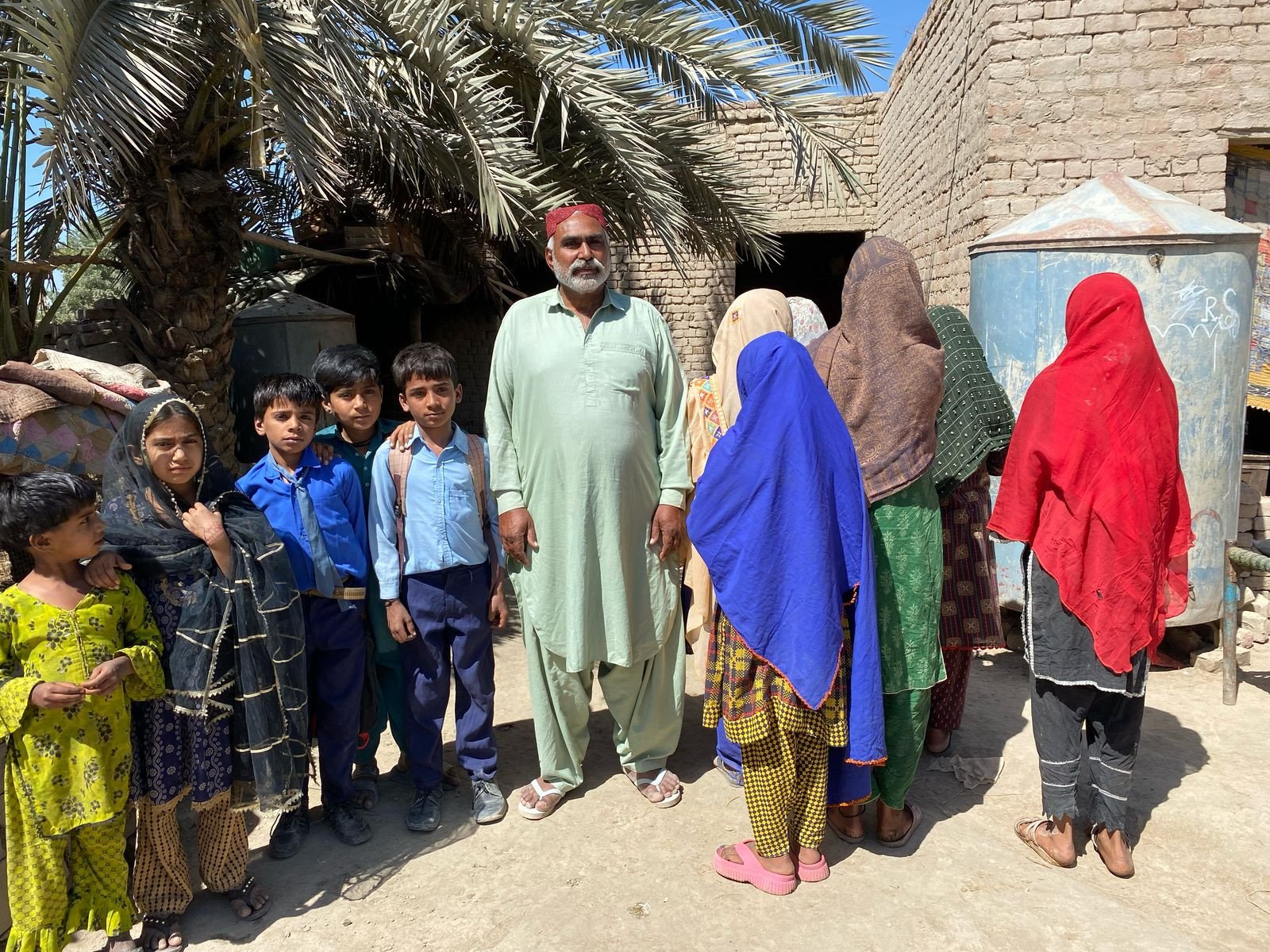
Driving through the katcha uneven road by the right bank of the Rohri canal, near Sukkur Barrage, I stopped by a huge boundary-less katcha compound surrounded with thorn bushes to keep the trespassers and animals away. A green cloth stretched with the help of bamboos served as the main entrance to the compound. I stopped there and called on Jamal Din Umrani. Immediately a little girl peeped out of a hole in the cloth curtain. While looking inside the house, she called out ‘Baba someone is standing outside.’ In a matter of seconds, a man came out of the house and introduced himself as Jamal Din Umrani.
The man escorted me inside the huge compound. It was littered with cow dung here and there. The women and girls immediately went into a room, because they observe purdah in front of strangers. Jamal Din spread a rilli on the cot and asked me to sit down. There were buffaloes and cows tied at different places, and chicken roamed around, pecking at grain and insects from the katcha floor.
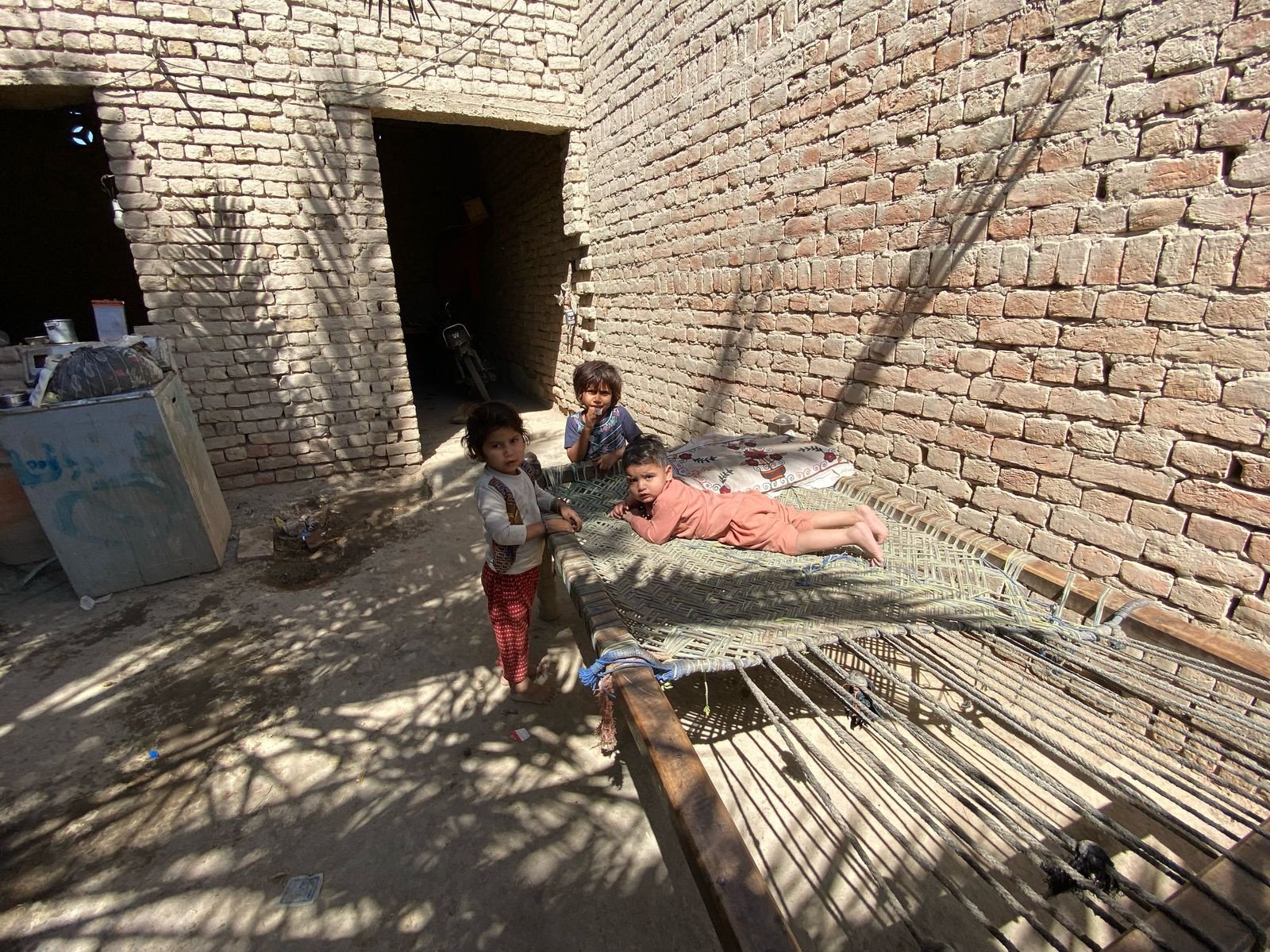
Born in 1971, in a village named Ghulam Rasool Umrani, Jamal Din now has 20 children and two wives. Except for seven married daughters, all of them live in this huge compound. Talking to The Express Tribune, Jamal Din pointed towards a motorcycle loader and said, “I use this motorcycle loader to earn livelihood for my family.” All the cattle belong to other people, who pay him to take care of the animals.
Jamal Din was married at the age of 15. After having 10 daughters in succession, he decided to marry another woman to have a son. However, Mother Nature was at play again. “Only after six months of my second marriage, my first wife gave birth to a baby boy,” he said, smiling at the irony.
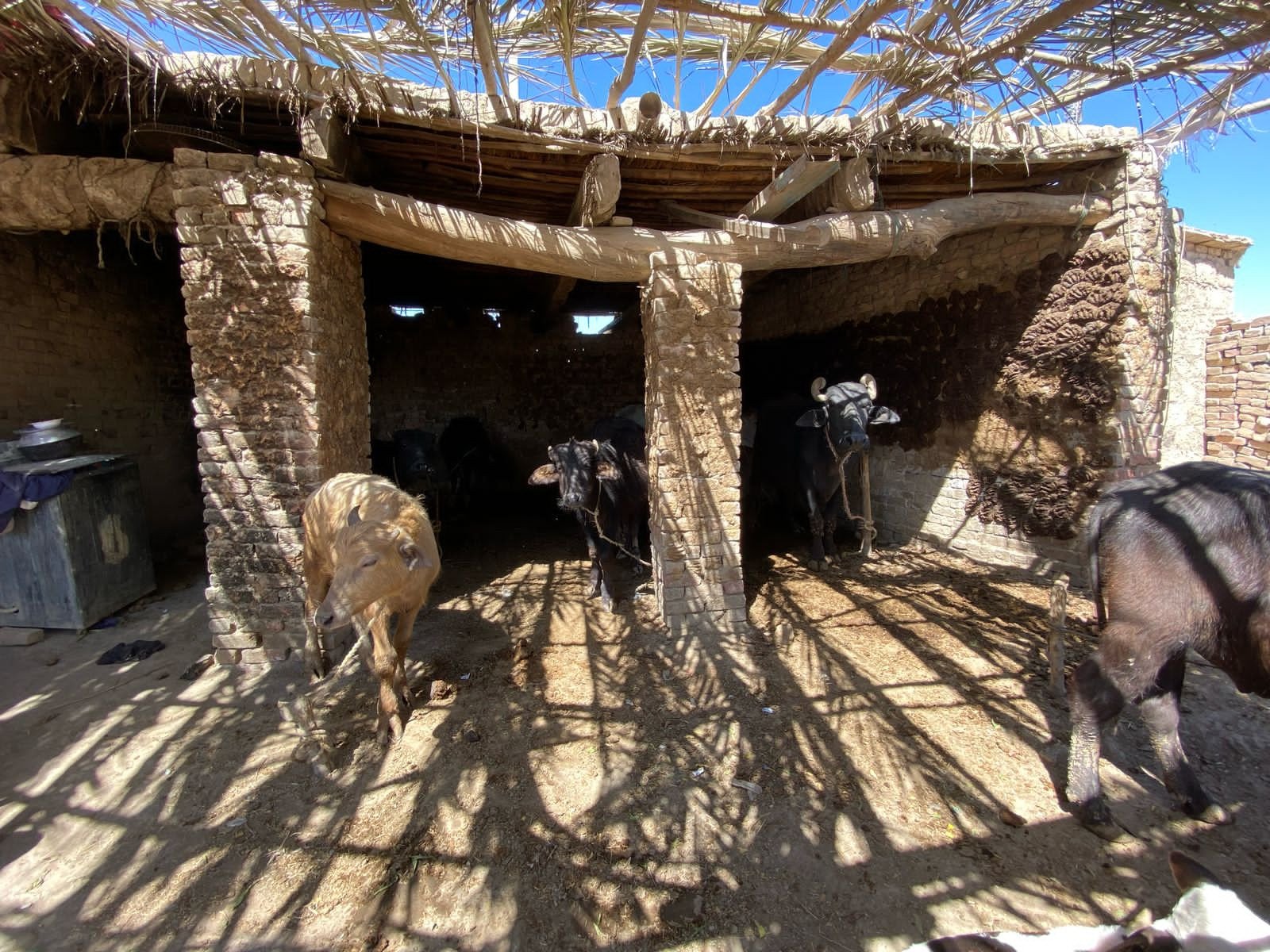
Jamal Din seems happy with his large family. “This is the blessing of Almighty Allah,” he said of his offspring and thus he had never thought of using any contraceptive methods. “You know what?” he hissed, “we poor people don’t have any entertainment facility so we take this opportunity as an entertainment to forget our worries and tensions.” Then laughing sheepishly at his own words, he said, “Hope you don’t mind me saying that.”
When I asked about the problems of raising such a large brood, he said, “Yes, sometimes I feel that I have made a mistake. But now I have realized that the Almighty is always there to take care of you.”
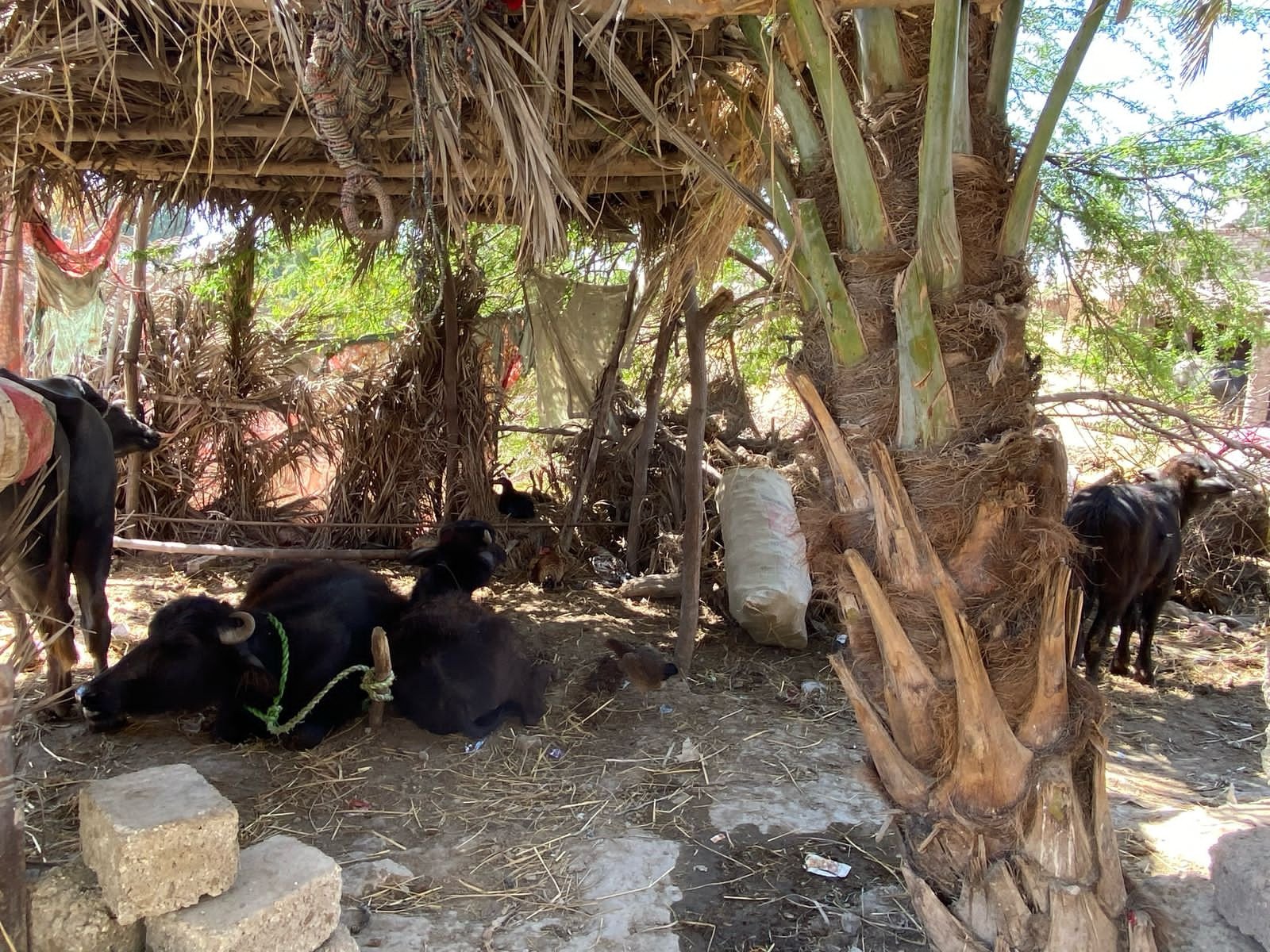
Jamal Din and his wives are unlettered and he regrets this. He wants his children to be educated. Most of his children except for three or four youngsters go to a government primary school in a nearby village. He shared that most of the time his children return from the school without reading a single word, because teachers are seldom in school to perform their duty. “Because of this, many villagers sent their children to the private schools in Rohri town, but it is difficult for the poor to bear the expenses of school fee and pick and drop facility,” he added.
Jamal Din recalled his parents and elders saying that sending children to school is a waste of time and money. “But now I have realized that they were wrong, as without education people can do nothing in this fast-moving society.” He is desperate to send his children to good schools, but his financial position bars him from doing so. “I am of the view that education is a must for both boys and girls so that they can join the mainstream society and play their role in the development of the nation,” he continued.
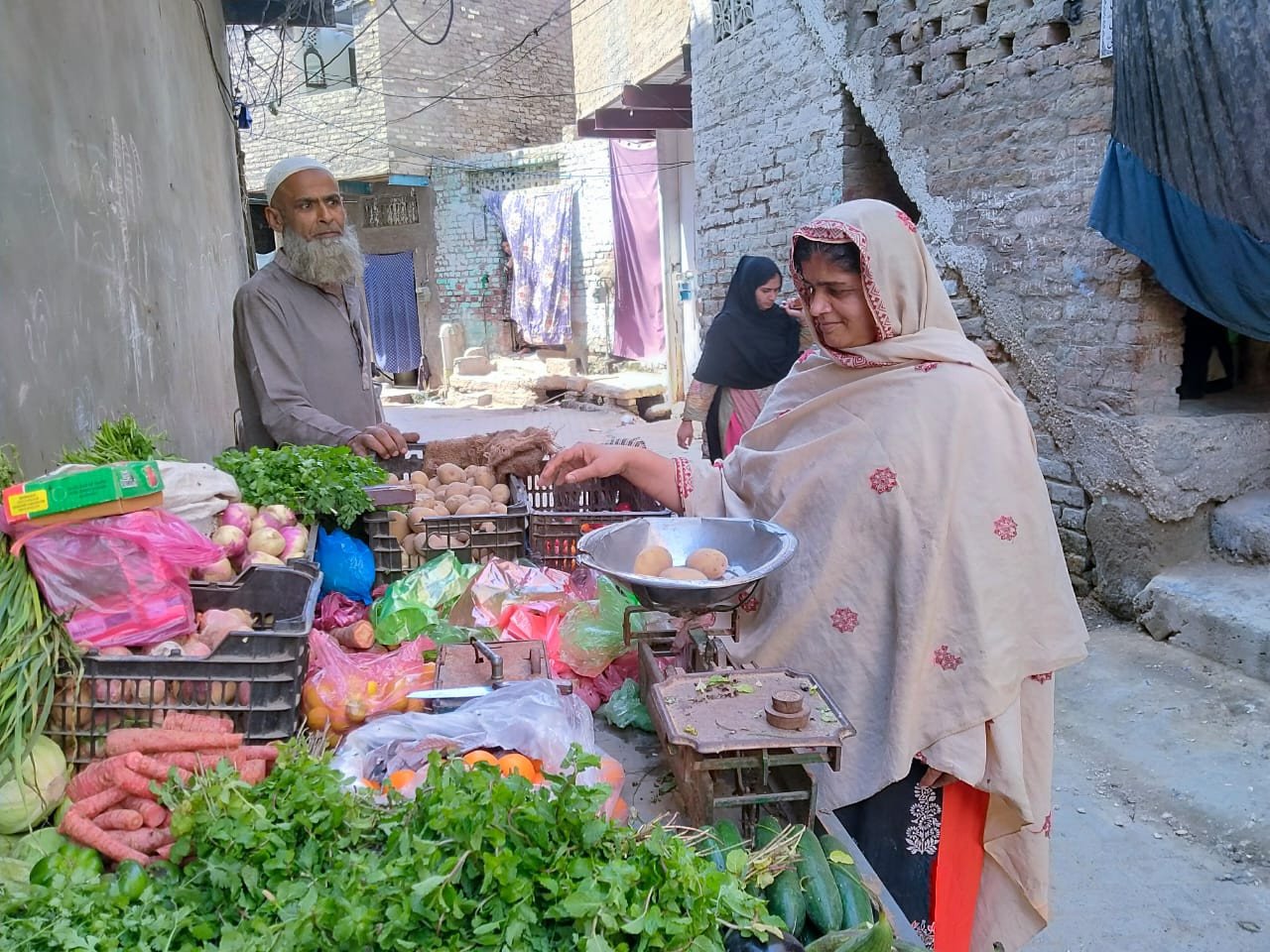
Born in the slums of Saleem Colony at Regent Road, Mai Zainab was married to Gul Mohammad in 1993 at the age of 20. Her husband is 15 years older than her. After eight years of marriage, she gave birth to a baby girl, who died within 15 days and after that she never conceived. “We visited many doctors for check-up, but could not afford costly tests and medicines. So in the end we decided to leave the matter to God,” she narrated.
Once they visited a fertility expert in Hyderabad, who prescribed some medicines that he said might work. But they were unaffordable for the couple. Mai Zainab added, “We have been married for almost 32 years now. Although we sometimes become depressed at not having children, we have managed to overcome this shortcoming.”
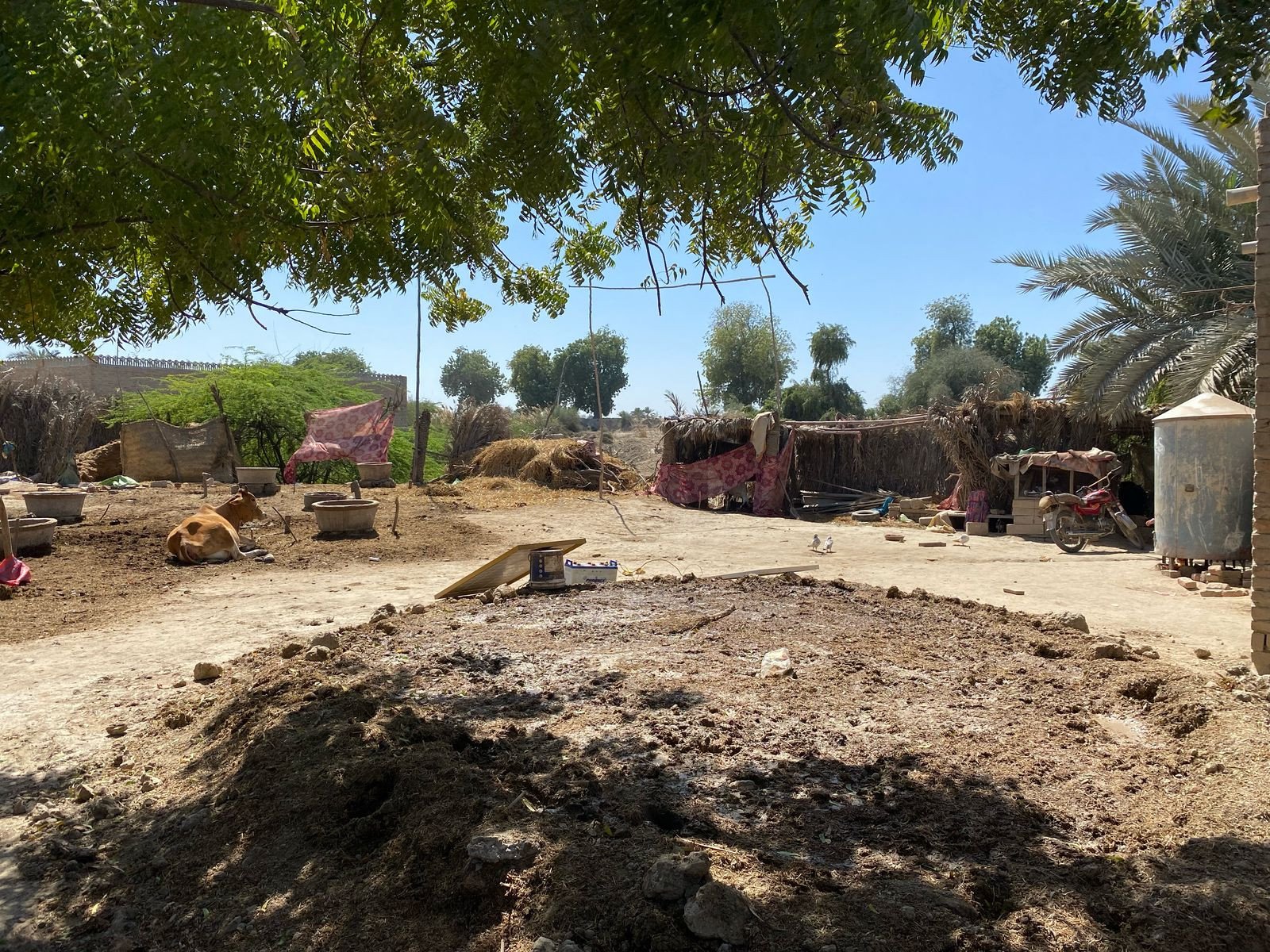
Gul Mohammad, a humble and polite man, sells vegetables in his area, while Mai Zainab works as domestic support and in this way both of them earn enough to lead a comfortable life. They pay 7,500 rupees per month as rent for their house. Mai Zainab loves her husband very much and therefore after work, she goes home and takes charge of the push cart loaded with vegetables to allow her husband some rest.
For his part, Gul Mohammad has resigned to fate. “Yes, sometimes I regret not having children,” he admitted, “but I immediately brush aside the regret and start thinking positively, that if today we are without a child, it’s because Mother Nature doesn’t want us to have one.”
He believes that poverty is not the cause either.
“I have seen some well-off couples too who do not have children. This is where the human being has to bow down to the power of Mother Nature,” he said.
Sarfaraz Memon is a freelance journalist and contributor based in Sukkur
All facts and information are the responsibility of the writer
